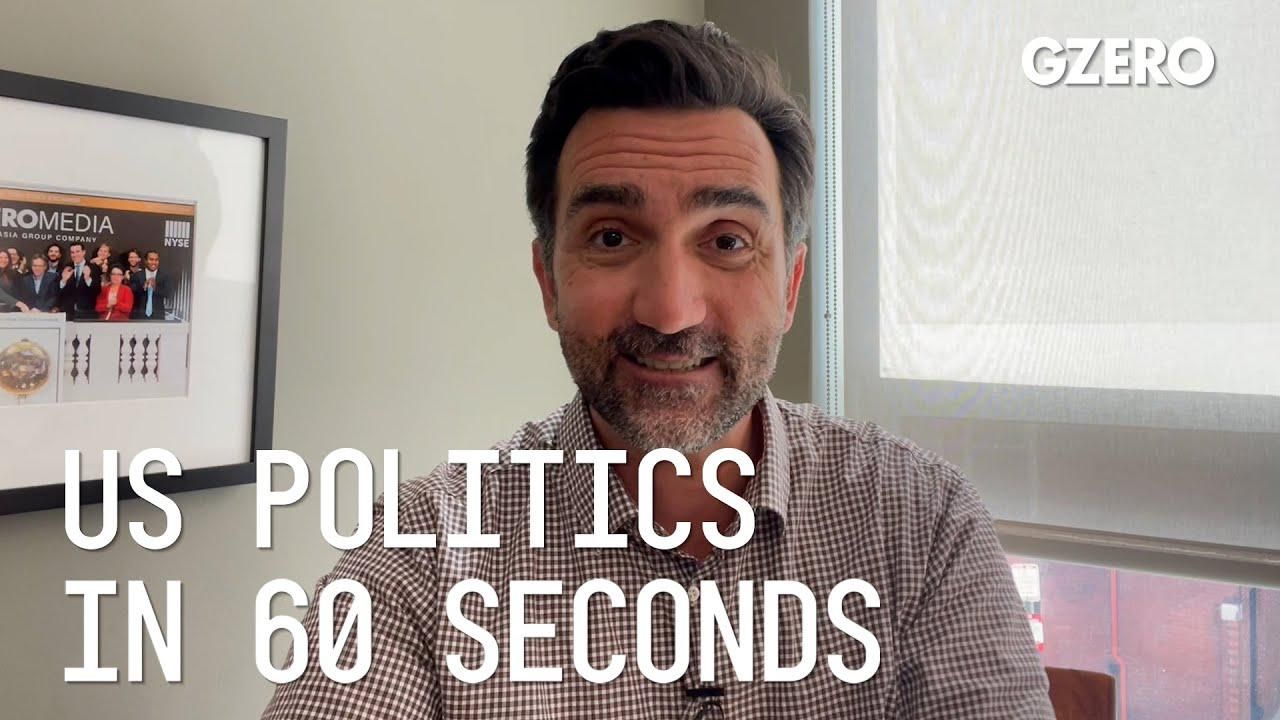US Politics In 60 Seconds
Rising gas prices will test US resolve on Russian sanctions

Rising Energy Prices Will Test American Patience for Ukraine War | US Politics In :60 | GZERO Media

Jon Lieber, head of Eurasia Group's coverage of political and policy developments in Washington, shares his perspective on the US ban on Russian oil imports.
Today, Biden announced a ban on Russian oil imports. What will this mean for Americans in the near-term?
Well, prices have already rocketed at the pump in result of the Russian invasion in Ukraine and the incredible sanctions that the US and the EU have put on Russia as a result. The average price for a retail gallon of gas has gone up 55 cents just in the last week, and it's likely to escalate even further with today's announcements, potentially reaching $5 or even $6 a gallon. This is unprecedented in the US and hearkens back to the energy price shocks of the 1970s that led to an inflationary price spiral that took years for the US economy to unwind. The Biden administration's signaling this is not the end of their escalation against Russia and is preparing the American people to bear some of the costs of these incredible actions.
Unfortunately, for Biden, there isn't much he can do in near-term to alleviate these price pressures. He went out of his way to warn oil companies against price gouging, but this is really more about blame-shifting than it is an actual solution to higher prices. The Biden administration did announce a release of $30 million from the Strategic Petroleum Reserve, yet prices keep on rising. He cannot force oil companies to drill more. In the long-term, the Biden plan still calls for decarbonization of the US economy, which hurts the investment picture for new, very costly oil and gas projects, but in the very, very long-term could allow the US to be independent from fossil fuels. This is not a short-term solution, however, and the price of gas is going to keep going up further, which will test the American public's willingness to continue this war against Russia. Biden is seeing a small polling bounce in the war, it's important to note, but the domestic consequences of this as they become more clear will test the American people's patience for this war as energy prices rise.
In this Quick Take, Ian Bremmer addresses the killing of Alex Pretti at a protest in Minneapolis, calling it “a tipping point” in America’s increasingly volatile politics.
Who decides the boundaries for artificial intelligence, and how do governments ensure public trust? Speaking at the 2026 World Economic Forum in Davos, Arancha González Laya, Dean of the Paris School of International Affairs and former Foreign Minister of Spain, emphasized the importance of clear regulations to maintain trust in technology.
Will AI change the balance of power in the world? At the 2026 World Economic Forum in Davos, Ian Bremmer addresses how artificial intelligence could redefine global politics, human behavior, and societal stability.
Ian Bremmer sits down with Finland’s President Alexander Stubb and the IMF’s Kristalina Georgieva on the sidelines of the World Economic Forum to discuss President Trump’s Greenland threats, the state of the global economy, and the future of the transatlantic relationship.